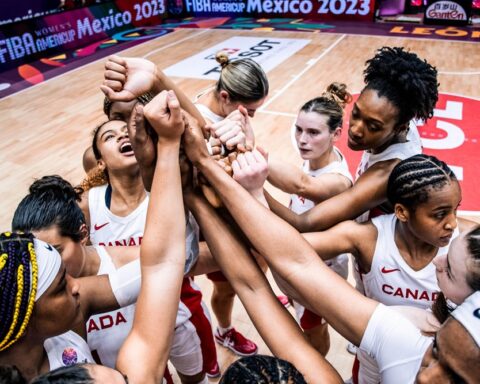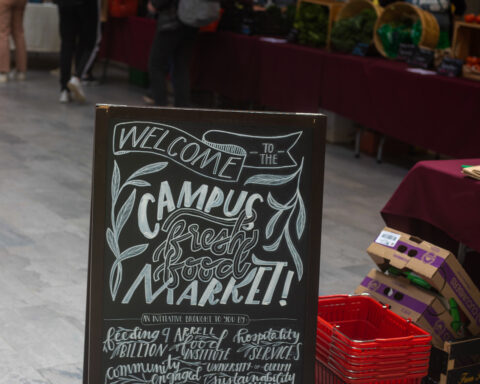When you turn on your TV, answer your cell phone or read an advertisement online, chances are more and more likely that the same company is behind all three services.
By both historical standards and when compared to other countries, there an exceptionally small number of companies in Canada that control the production and distribution of the media, according to a recent study by the Canadian Media Concentration Research Project.
“Our media environment is very badly served by the high levels of concentration we have,” comments Dwayne Winseck, the study author and a professor in the school of journalism and communication at Ottawa’s Carleton University.
The report, titled “Media and Internet Concentration in Canada”, analyses the trends in media concentration across cable TV, newspapers, online news sources and more between 1984 and 2014.
“Part of a vibrant media environment in any country . . . is having a diversity of voices.”
Ben Klass, a PhD student at Carleton who assisted Winseck with his research, echoed his professor’s concerns.
“Part of a vibrant media environment in any country . . . is having a diversity of voices and a diversity of opinions so that the population can be very informed about important social and political issues.”
Space for alternative Canadian news sources
“Canada and its media industry overall is highly concentrated, and this is not unusual,” says Klass. “Where Canada is an outlier is in the extent of vertical integration.”
Vertical integration refers to the cross ownership of companies that control the means of media distribution. As demonstrated by Bell’s re-acquisition of CTV in 2011 and Shaw’s acquisition of Global TV in 2010, the number of companies in control of the sources of distribution is shrinking in Canada.
To contrast, the Internet news sources frequented by Canadians are defined by “astonishingly high” levels of diversity, according to Winseck, both in terms of niche content and the geographic location of the providers.
“You have traditional media outlets kind of [side by side] with some new media outlets and domestic media outlets sitting [beside] foreign media outlets,” explains Winseck.
[There] is a consumer desire for new and niche content, such as targeted blogs and ethnic-based media.
Winseck speculates that this might be a result of a lower cost of entry online, as well as the perceived reliability of sources like The Guardian, BBC and ABC.
“People are looking for trustworthy and credible news sources so they go to sources that they’ve heard of or they already know,” he says.
Paired with this access to international news sources is a consumer desire for new and niche content, such as targeted blogs and ethnic-based media.
While currently these sites receive a minuscule proportion of the available revenues online, Klass suggests that they may be able to attract advertisers looking to reach niche audiences.
“Advertisers don’t seek an undifferentiated, mass audience,” he explains. “They seek an affluent audience or at least one that is going to pay for the goods that are being pedalled.”
Dangers of media concentration
Despite these trends, Winseck cautions against being too optimistic.
“While there is some additional space for sure in the online news space . . . to go from niche to top 20, it still takes a lot of resources,” he says.
“[T]o go from niche to top 20, it still takes a lot of resources.”
Of the countless blogs, websites and sources of news online, two companies – Facebook and Google – take a massive portion of the total advertising revenues.
“While there’s a large diversity of sources available on the Internet . . . they all sort of exist in a relatively competitive environment,” says Klass.
According to the report, the largest 10 telecom, media and Internet companies accounted for 83.4 per cent of all revenues in 2014.
This is problematic for many reasons Klass explains.
“When you have a small number of very large companies owning a lot of [the media] they also own the way these things are delivered to people . . . and you can see the sort of dangers of these things in action.”
Winseck agrees: “That ugly underbelly is that as newspapers go belly up; you have rich patrons moving in and buying them up. That was the case we saw with [Jeff] Bezos scooping up the Washington Post.”
Expectations for future
Winseck says he expects to see a mixed model in the future of Canadian media.
“We are going to see traditional news organizations like the CBC, like the Globe and Mail, like the BBC retain a solid position at the centre of the news environment, although it’s going to be pared back significantly.”
Winseck hopes to see a potentially more democratic core of news that involves a plurality of voices.
“Flanking these core media we’re going to have the partisan media,” he continues. “Then we’re going to have cooperative news ventures where people are working on a voluntary basis, if you will, to create and share the news.”
Winseck hopes to see less worry about the ongoing “crisis of journalism,” and instead see a potentially more democratic core of news that involves a plurality of voices financed by different support structures.
Klass speculates that the government will encourage this by being more involved in the regulations around media concentration and ownership.
“In order to ensure that we continue to have relatively vibrant media ecology, I think that these issues are going to become more contentious at a political level.”





